Chroniclers of fake holidays have marked today down as Bell Bottoms Day, commemorating a style of trousers that dates back to the early 19th century that are perhaps best known as a way of making fun of the fashion of the 1970’s. Charlottesville Community Engagement has no position on any fashion choice, but as host, I should inform you that I am very interested in any attempt to define a style of the 2020’s and hope the chronicler of fake holidays will take this into account.
On today’s program:
Charlottesville City Council holds the first reading of the budget for FY24 and it is slightly larger than what was presented in March
Charlottesville officials have denied preliminary site plan for an apartment complex planned for the floodplain along the Rivanna River
Charlottesville City Schools have hit pause on the naming of city schools
More items from the latest report from interim City Manager Michael C. Rogers
An update on the ongoing transit governance study
First shout-out: Charlottesville Community Bikes
In this first subscriber supported shout-out, Charlottesville Community Bikes believes that bicycles can be a means to social change, addressing issues of equity, access, and inclusion. They provide free bikes to adults who need one, and have a special program that provides free bikes to children.
But they also provide information some in the community may need! That includes a weekly series on Bike Mechanics 101 beginning on April 13. Learn more at charlottesvillecommunitybikes.org Want to learn more or support their work? Charlottesville Community Bikes currently is seeking matching funds for a grant from the Outride Fund. Visit charlottesvillecommunitybikes.org to learn more.
Council takes first step toward approving FY24 budget
There is one more budget work session scheduled for Charlottesville City Council, but on Monday the elected body took the first step toward adopting a $227.7 million budget for fiscal year 2024. That’s slightly higher than what was originally presented in early March.
“There is a difference of $1,456,900 from the proposed budget that I initially presented,” said interim City Manager Michael C. Rogers.
The additional revenue comes from items in the FY2023 budget that will not be appropriated and will instead be carried over into the next fiscal year. These include $197,181 for Diversity, Equity, and Inclusion, $394,436 for Council strategic initiatives, and $43,748 for the Sister City program.
The work session on Thursday will provide one more opportunity to alter the budget before their final vote to adopt on Tuesday, April 11.
“I don’t think we’re quite there yet on the budget,” said City Councilor Michael Payne. “I would like to see more funding for Pathway, [Charlottesville Redevelopment and Housing Authority], [Public Housing Association of Residents], some nonprofits in housing.”
The various tax rates will remain the same.
No one spoke at the public hearing on the first reading of the budget. There will be no public hearing for the second one but public comment will be taken at the work session on Thursday.
Charlottesville issues denial for 0 East High project for third time
The City of Charlottesville has once again written a letter indicating they will deny a preliminary site plan for 245 apartment units to be built on undeveloped land off of East High Street. (read the letter)
Seven Development is working with Shimp Engineering on a technical plan for the project, which would require fill dirt to be imported to elevate three buildings out of the floodplain.
Shimp Engineering had submitted a third site plan on February 17. They now have until June 30 to submit a new version to address the city’s concerns. Here’s some of what’s in this latest denial:
The applicant has acknowledged that a permit will be required to develop in the floodplain as the property is within the city’s Flood Hazard Protection Overlay District. (click here for the relevant section of City Code)
The applicant has also acknowledged that bonds for public improvements, erosion and sediment control, stormwater management facilities must be submitted before a final site plan can be approved.
The applicant also acknowledges that any site-related improvements must be completed before any certificates of occupancy are issued.
The project would not be phased but would instead be built all at once.
All landscaping must be addressed in the final site plan.
The Water Resources Protection Administrator has a note that “the quantity and location of fill in the floodplain at 0 High Street suggests that the design engineer will not be able to demonstrate a no‐rise condition in the floodplain in public right of way, even with the development of a hydraulic model that represents proposed conditions.”
Traffic engineer Brennen Duncan said the proposed public streets don’t satisfy the city’s Standards and Design Manual and instead would be classified as driveways that would not be accepted into the city’s secondary road system.
For more background on this development:
Plans filed for 245 units along Rivanna River on land in floodplain, September 27, 2022
Group plans fight against East High Street apartments, October 4, 2022
Project to build 245 units at East High Street detailed at site plan conference, October 17, 2022
Charlottesville denies preliminary site plan for 245 units in floodplain, November 1, 2022
Council to consider funds for market study of land slated for apartments, February 6, 2023
Planning Commission likely to to review 245 units planned for East High Street, March 18, 2023
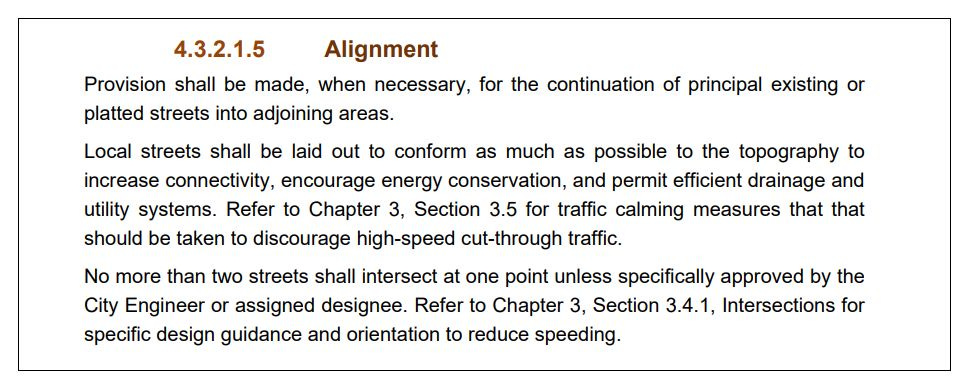
Charlottesville City Schools hit pause on school name change
Charlottesville City Schools have been in the midst of reviewing the names of all schools to see if they fit with the division’s current values. So far, the elementary school known as Venable is now Trailblazer and the one known as Clark is now Summit.
The School Board had been scheduled to vote on April 13 on new names for Johnson Elementary and Burnley-Moran Elementary out of a sense that the namesakes were people who worked for the school system during a racist era.
However, Vice Mayor Juandiego Wade said the other night that the process is on hold.
“I just heard from a School Board member that they have paused the name change for the schools,” Wade said.
Wade’s comments came after those of a community member concerned renaming the schools at the time is confusing, given that the city just adopted new boundaries for voting precincts which become effective this Friday. Over forty percent of Charlottesville voters will cast a ballot somewhere new. (Council votes to approve new precincts with two new polling places, March 8, 2023)
“Nobody wants voters to show up at their old polling places being confused or seeing it as a barrier,” said Derek Hartline. “The confusion with polling places could get worse as seven of the nine precincts will be held at city schools while at the same time the School Board is going one by one and changing the names of schools, thus changing the polling places names.”
A March 29 memo on the school renaming committee’s webpage states that a vote will still be taken on April 13 to affirm a desire to remove the old names but to pause finding new ones.
“It may not be possible to find names for Burnley-Moran and Johnson that combine both purpose and place, but we would like to slow down the name selection process to give us the best chance of finding lastingly meaningful and fitting names for our schools,” reads the update, which does not have a mention of polling places.
City manager’s report: Contract awarded for Buford renovation
Yesterday’s newsletter had several items from the report from the interim City Manager but here are some more odds and ends from the written report:
The application window is open for the Community Attention Youth Internship Program for positions this summer for the period between June 26 through August 6. Youth can apply here.
The search for a new Director of Communications is in the final stages and the position is expected to be filled soon. It has been vacant since late 2021 when Brian Wheeler resigned.
Joy Johnson is the chair of the new Housing Advisory Committee. Her appointment to the body is the only one filled of three slots for “affordable housing beneficiaries.” In addition to being a resident of a Charlottesville Redevelopment and Housing Authority property, Johnson is also the Section 3 coordinator for the agency. (current Section 3 policy)
A strategic plan for the city’s Economic Development office is expected to be complete in July 2023. The firm Resonance is working on the study, which is being overseen by a 16-member steering committee. A total of 280 people filled out a survey. (Survey launches for Charlottesville economic development plan, February 1, 2023)
CAT will spend an additional $3 million allocated to increase service throughout the system with a focus on Route 6.
A contract has been awarded to Nielsen Construction for the renovation of Buford Middle School due to their lowest bid of $71.4 million. The total project cost is $84.3 million, with $5.5 million of that already allocated in previous budgets. That brings the total amount needed in FY24 to $78.8 million. This work will not include renovation of the Buford auditorium.
Second shout-out: ACHS presents Inside the Walls of Worship tour
In today’s second subscriber supported shout-out, the Albemarle Charlottesville Historical Society is planning a historical tour on April 29 as a fundraiser that will give participants a look into the soul of a community. The Inside the Walls of Worship tour will visit the Congregation Beth Israel Synagogue, Christ Episcopal Church, and the Albemarle County Courthouse and experts will provide history on the details of each. Tickets are $40 per person and the tour will start at First Presbyterian Church with free parking. Register on Eventbrite!
Update on transit governance study
There are many words to be written and stories to be documented about the future of public transit in the community. Both Albemarle and Charlottesville contributed financially to a study last year that imagined a more robust system, and are now paying for a second study to find a governance structure that could bring down more funding from the state and federal government.
There are five phases in this study with the first being a list of existing conditions. A second phase looked at peer communities such as Blacksburg and Ithaca, New York, and this has just been completed. (view the March 21 presentation)
“Where we are looking at governance structures of other transit agencies in similar areas,” said Stephanie Amoaning-Yankson is with AECOM, the firm hired to conduct both of the studies to date. “Phase three will look at potential revenue generation.”
That revenue would go to try to implement the Regional Transit Vision, a document which cost $350,000 to produce. It produced one aspirational bus system for the entire Thomas Jefferson Planning District that would cost $70 million a year to operate and a second that would cost closer to $35 million.
“Once we have some potential sources down, then we will start to craft some alternatives for governance scenarios of what that would look like,” Amoaning-Yankson said.
That’s phase four. Phase five would produce a finalized governance structure and funding strategies. That will come out of interviews with Charlottesville Area Transit, Jaunt, and University Transit Service.
“We got to understand how they are organized, understand their organizational structure, and what the governance looks like,” Amoaning-Yankson said. “We also discussed what their funding situation is like and how they interact as far as where their services overlap and how they coordinate in that area.”
A previous effort to create a Regional Transit Authority in the late 2000’s resulted in enabling legislation passing the General Assembly. However, the entity was not formed because a second bill to allow a sales tax referendum did not make it out of committee. The legislation is still on the books but does not alone come with any power to generate revenues.
“Because we have the existing legislation that is set up for the CARTA we can call it, we can look at either modifying that to address whatever changes we would want in the entire region based on this process that we are going through,” Amoaning-Yankson said.
Other options might include a transportation authority or creation of a larger public service corporation. The latter is how Jaunt is set up. There are also other examples from other university communities. More details on this as the study continues.
Reading material:
Results of Charlottesville Compensation Study released to city council, Dryden Quigley, April 3, 2023
City budget nearing approval, Garrett Whitton, CBS19, April 3, 2023
Charlottesville City Council approves appropriation of $40,000 funding from Batten Family Fund grant award, Caroline Hagood, Cavalier Daily, April 4, 2023
Charlottesville's Azalea Park to grow, Hawes Spencer, Charlottesville Daily Progress, April 4, 2023
Concluding sentences to wrap up #517
Every day there is something to write about and nothing makes me feel more content than when I am able to post a newsletter every day. This newsletter and podcast exists to try to make sure people know what’s happening and to avoid crack falling.
I’m able to do it as often as I am thanks to paid subscribers who want this work to continue. I’m grateful for this and hope you’ll join them. If you already have, then I definitely am grateful and want you to know you fuel me.
If you want to join them, Ting will match your initial payment to Substack. Whether that be $5 a month, $50 a year, or $200 a year, you will help me keep my eyes and ears on as much as I can.
If you sign up for Ting at this link and enter the promo code COMMUNITY, you’ll get:
Free installation
A second month for free
A $75 gift card to the Downtown Mall
Thanks to Wraki for incidental music in the podcast, which you can’t hear unless you listen to it. Check out the work on BandCamp!
-

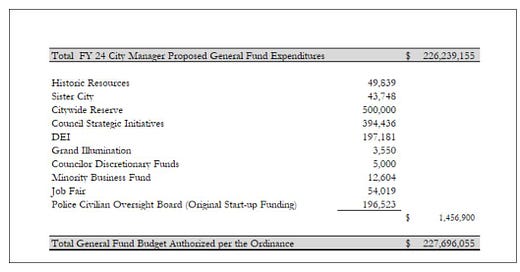
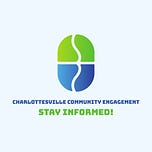



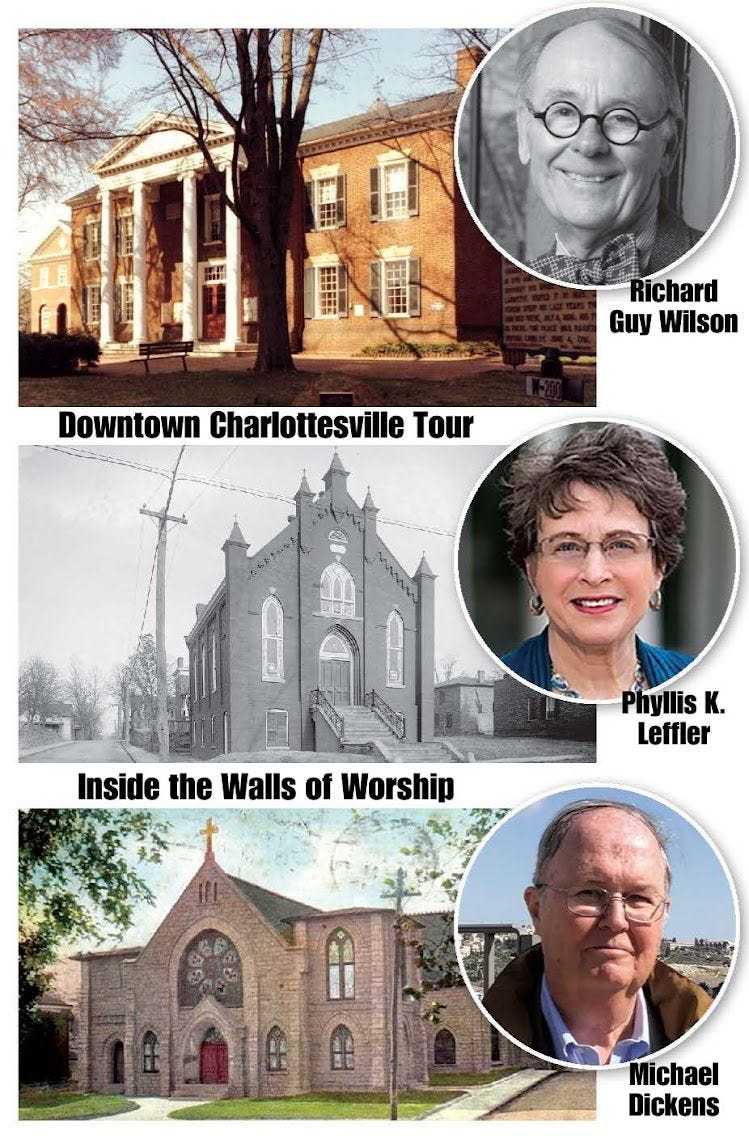




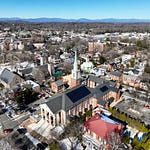


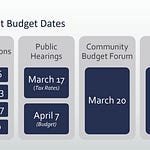

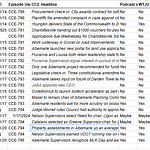

Share this post